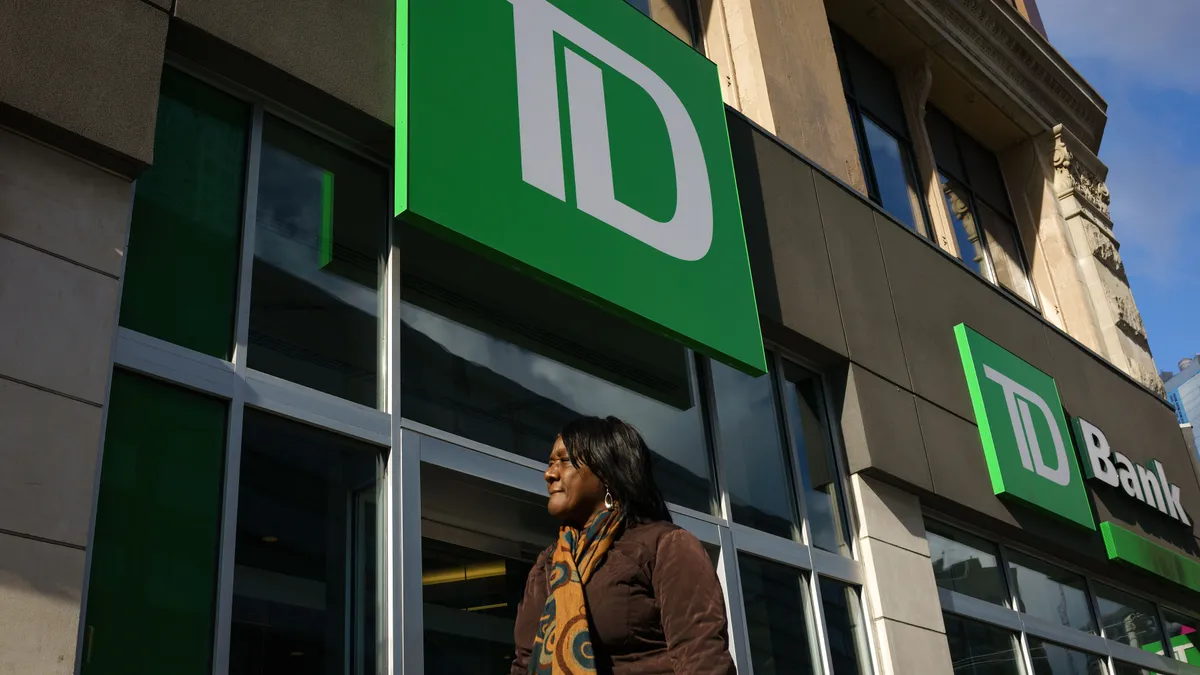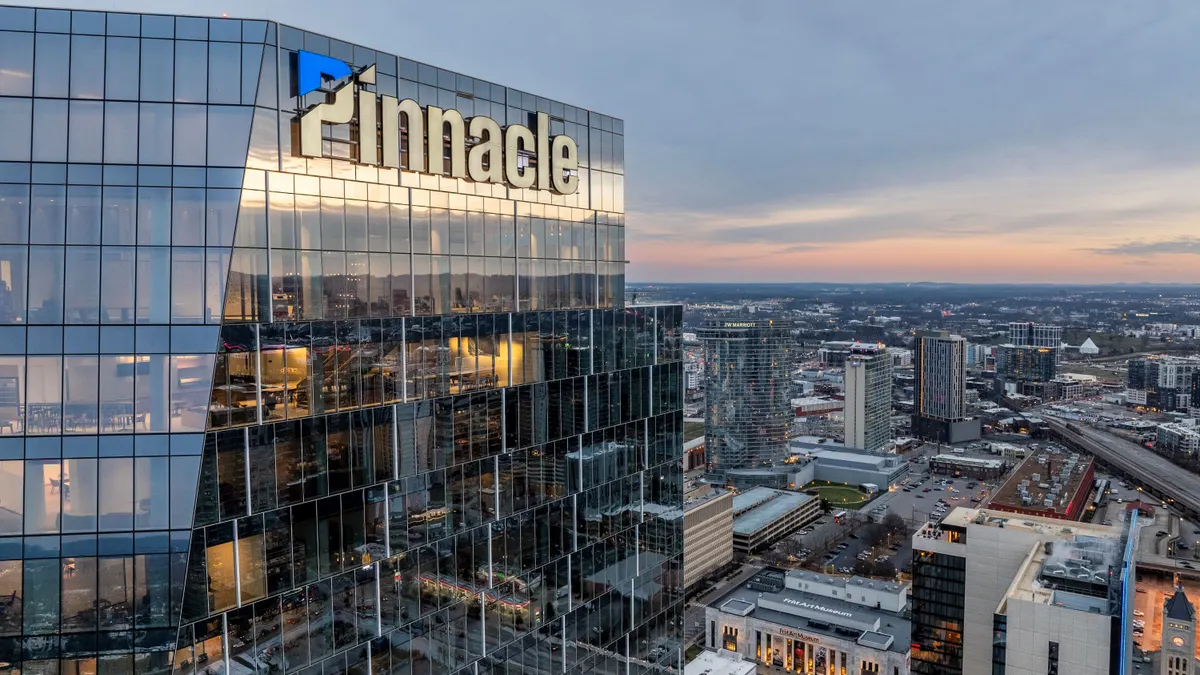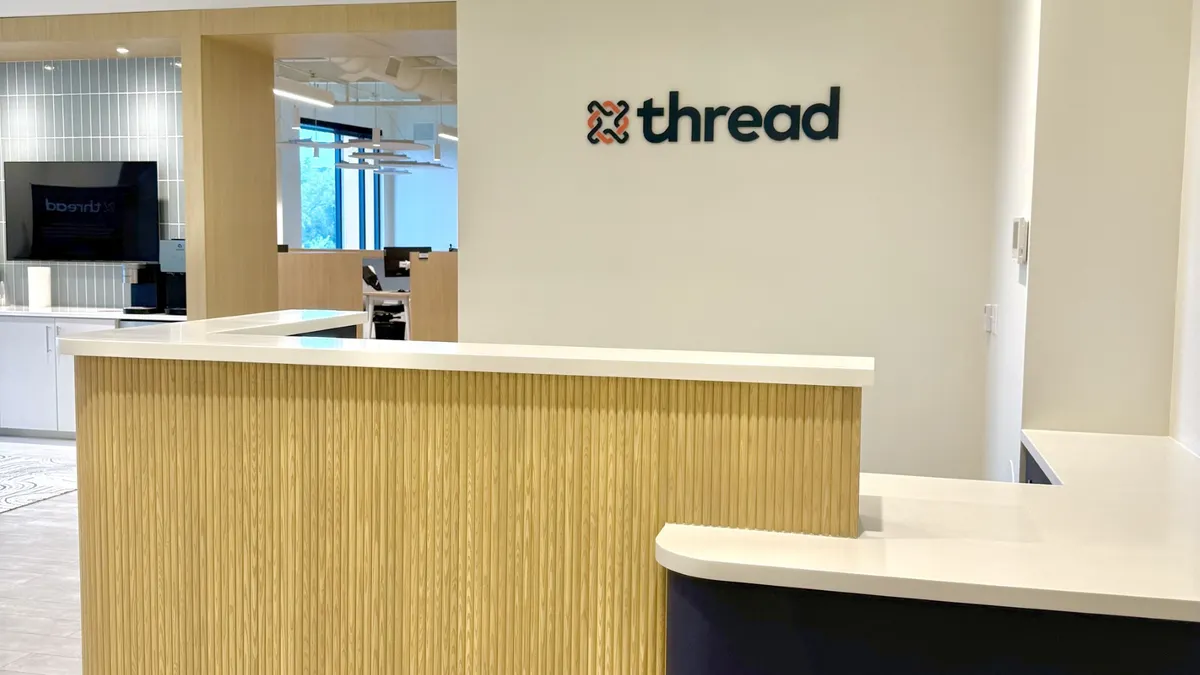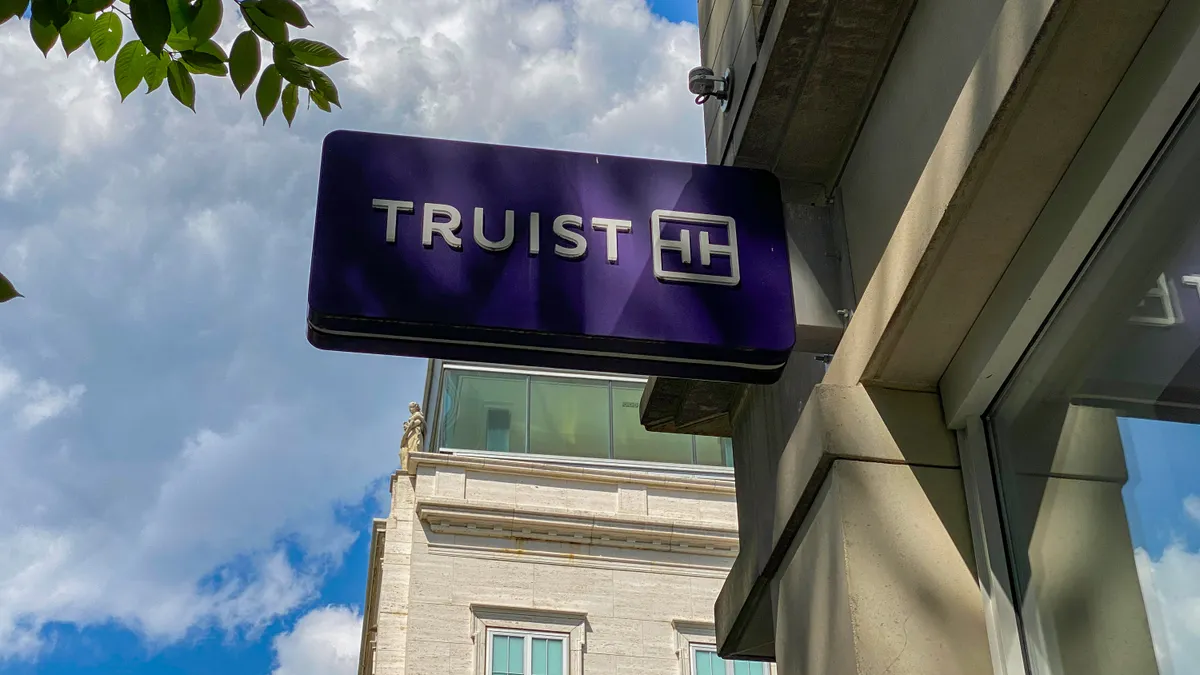Canadian banks TD and BMO on Thursday each reframed the timelines by which they expect their pending acquisitions to close.
TD now says it expects its $13.4 billion purchase of Memphis, Tennessee-based First Horizon to be complete in the first half of fiscal 2023, according to quarterly earnings results it issued Thursday. TD’s fiscal year ends Oct. 31, so that puts the target date at April 30, 2023.
TD had previously targeted 2023’s first financial quarter (Jan. 31), according to The Globe and Mail. But the bank included a price variable when it first proposed the deal in February.
First Horizon stockholders were due to receive $25 per share regardless but will now receive an additional $0.65 per share because the acquisition did not close before Nov. 27. Either party may terminate the deal if it doesn’t close by Feb. 27, 2023, but the timeline may also be extended to May 27.
"We don't control the timing of all the regulatory approvals, but we are confident that we'll get closing within the timeline that we've put out," TD CEO Bharat Masrani told analysts Thursday, according to American Banker.
U.S. regulators have generally taken extra time to review mergers and acquisitions since President Joe Biden issued an executive order in July 2021, demanding “more robust scrutiny” of bank combinations.
The $2.6 billion merger between New York Community Bank and Flagstar, for example, took 19 months to complete. The banks extended the transaction’s timeline twice and shifted the surviving entity to a national bank charter from a state one to get approval.
The TD-First Horizon deal, which would expand the Canadian bank’s footprint in the Southeast and create the U.S.’s sixth-largest bank, has seen exceptional pushback.
Community advocates at an August public hearing with regulators raised concerns over TD’s track record on mortgage lending to borrowers of color.
Later in the month, a dozen groups — led by the Center for Responsible Lending — wrote to officials at the Office of the Comptroller of the Currency (OCC) and the Federal Reserve Bank of Philadelphia, urging them to curb the deal over the amount TD collects in overdraft fees relative to like-sized banks.
And Sen. Elizabeth Warren, D-MA, wrote the OCC in June, asking the regulator to block the acquisition over allegations that TD incentivized employees to enroll customers in new accounts and services like overdraft protection without their consent, according to a Capitol Forum report.
If last year is any indicator, the banking space could see a flurry of deal approval at the last minute. The Federal Reserve, in the last week before Christmas, gave the green light to three acquisitions: Webster Bank’s $5.1 billion tie-up with Sterling Bancorp; WSFS Financial’s $976.4 million purchase of Bryn Mawr Trust; and the $2.2 billion merger between First Citizens BancShares and CIT Group.
BMO’s new timeline
Expedited approval would be welcome news for BMO, whose $16.3 billion proposed acquisition of Bank of the West from France’s BNP Paribas reaches the one-year threshold Dec. 20. The Canadian bank initially expected that deal to close by the end of 2022.
Bank executives, on a quarterly earnings call Thursday, said they now estimate the transaction will wrap up in the first quarter of 2023.
"We're saying first quarter of 2023. Is it first fiscal quarter or first calendar quarter? We don't know," BMO CEO Darryl White said Thursday, according to American Banker.
White followed up by saying the Bank of the West deal is "rounding third base.” That may be a nod to BMO’s pledge Monday to commit $40 billion to underserved communities — much of that in California, where Bank of the West is based — in a move meant to assuage regulators and the deal’s opponents.
As with the TD-First Horizon tie-up, community groups at a public hearing expressed concern over BMO’s mortgage lending to nonwhites and the potential impact of the merger on areas the bank would newly serve.
In its earnings statement Thursday, BMO reiterated a commitment not to close any Bank of the West branches and to retain the bank’s front-line branch employees.
BMO may stand to inherit fewer assets than initially thought, however. The Canadian lender Thursday said it expects to add roughly $92 billion in assets, $76 billion in deposits and $59 billion in loans as a result of the Bank of the West deal. That compares with an estimated $105 billion in assets, $89 billion of deposits and $56 billion of loans as of last year.





















